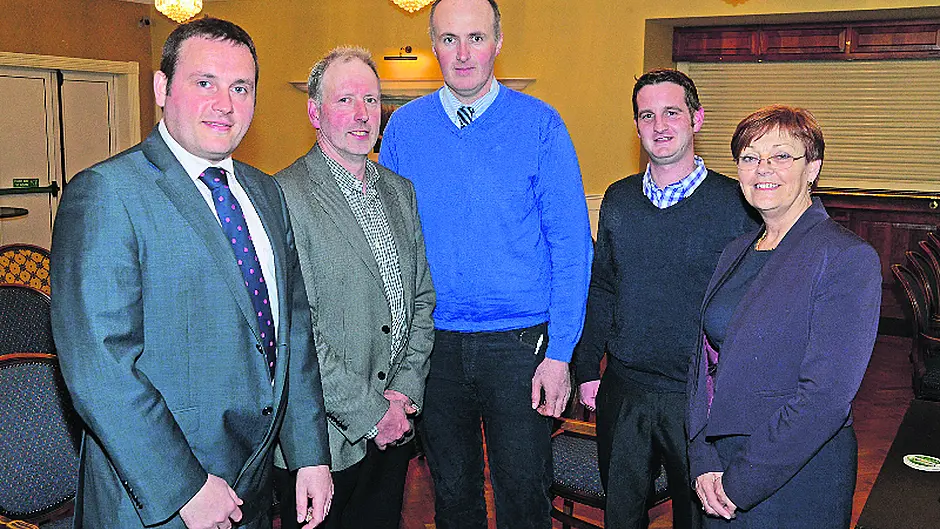As might be expected, the April meeting of West Cork ICMSA that took place in the Fernhill Hotel was dominated by the continuing slump in milk prices and the loss to both local milk producers and the wider local economy that is so dependent on the ‘dairy spend,’ as it goes into local businesses.
AS might be expected, the April meeting of West Cork ICMSA that took place in the Fernhill Hotel was dominated by the continuing slump in milk prices and the loss to both local milk producers and the wider local economy that is so dependent on the ‘dairy spend,’ as it goes into local businesses.
The meeting was chaired by Tom Wilson, Enniskeane, with Eileen Calnan, Clonakilty, acting as secretary and the guest speakers were Pat McCormack, deputy president of the Association and Donal Whelton of AIB in Bandon and a very good turn-out heard a detailed breakdown of the problem and various financial options being offered to the local farmers, amongst whom – the meeting heard – are some of the most progressive and commercially-minded operators.
The extent of the losses being suffered by Cork’s approximately 4,750-odd dairy farmers was starkly illustrated by Pat McCormack, who noted that the milk revenue to Cork’s farmers had fallen by the astonishing figure of €166 million between 2014 and 2016 and that this represented a loss to Cork’s economy of nearly €282 million as the farmers’ milk cheques were ‘spent into’ the local economy and multiplied by the 1.7 that is the standard factor as calculated by Professor Alan Mathews of TCD.
Mr McCormack and several contributors from the floor deplored the almost complete absence of any serious Government or EU response to this milk price freefall that has occurred right across the EU. He was quick to point out that, while price to farmers had fallen by in excess of 45% over the two-year period, the price paid by consumers for milk or dairy –derived products hadn’t fallen by anything even comparable and the only deduction was that the food retail corporations had simply anticipated the increase in supply post-quotas and then dictated new vastly lower prices back to the milk processors who had, in turn, cut their price to the farmers who were not in a position to cut their inputs at all.
The food retail corporations had simply ‘ate’ the farmers’ margins, the ICMSA deputy president explained. He was particularly scathing about Commissioner Hogan who, at the ICMSA AGM last November, told the delegates that the Commission was actively considering regulation in the food-supply chain, but who had now, apparently, undergone what Mr McCormack called ‘the usual customary change-of-heart’ experienced by Commission officials when they’re confronted with the lobbying power of massive multinational retail corporations.
‘Now all we hear is that maybe “voluntary codes of conduct” might be the way to proceed, as if these massive conglomerates are going to willingly forego profits and give the farmers and primary producers a living margin,’ scoffed the ICMSA speaker.
Donal Whelton of AIB presented a range of options that his bank was offering hard-pressed local milk suppliers and he urged farmers to engage and interact with their banks who were much more interested in working with local farmers and navigating through this prolonged period of low prices on a collaborative basis – high-profile local cases notwithstanding.
Other issues touched upon was the continuing farmer dissatisfaction with the Beef Grid with several speakers favourably noting Michael Guinan’s recent comparison of factory regulations and specifications as being akin to ‘a goalpost on wheels that was moved as soon as the farmer looked like being able to kick between the posts.’
Several questions also touched upon the wider issue around the perceived neglect of rural districts and the stripping-out of both state and commercial services like post offices, policing and banking. The attendance at the meeting was thanked for coming out during a particularly busy period on local farms.









